Today, we’ll talk about an extremely useful LogCheck function: Dependencies
In the LogCheck system, “logs” are synonymous with the routine tasks that need to be done in a facility on a daily, weekly, or monthly basis. During my time as a support specialist I have come across many scenarios where it makes sense for the facility staff to skip logs that became “due” but were not actually required within the default log frequency.
For example, if a chiller is not running, it doesn’t make sense to update all the logs associated with that chiller. This is the reason we created the dependencies function.
When dependencies are implemented in your logbook, users will see logs “activated” and “suspended” based on the status of specific logs. This helps your staff focus on what is actually due, reducing confusion, and saving time in the field.
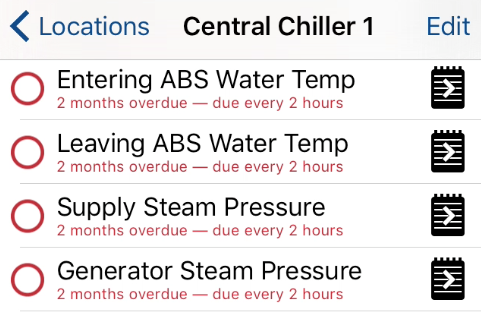
These logs were intentionally skipped since Chiller 1 was set as the backup 2 months ago
If you have not implemented dependencies in your logbook, you may find several logs that are inaccurately appearing overdue. These problem logs are not helping anyone. They are annoying to navigate and they lower your Coverage Score. This is not helping you prove you are on top of things in your facility. Luckily, there is an easy solution.
In some cases, due to changes in your facility, these logs may be irrelevant (learn to delete logs here). In other cases, dependencies can streamline the workflow for you and your team.
A dependency is when an associated log is linked to the status of a toggle style parent log. The associated log is only active when the designated toggle choice of the parent log has been recorded.
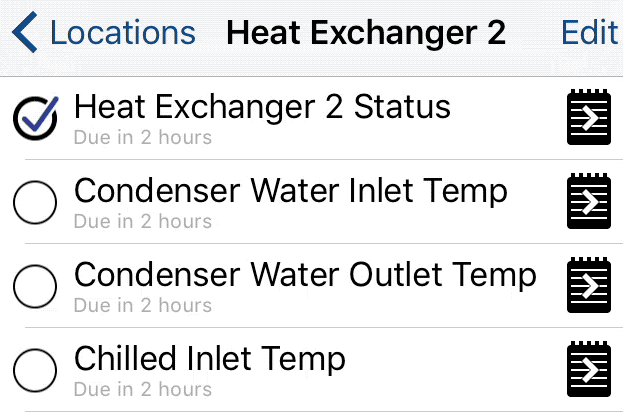
4 helpful ways to implement dependencies
- Activate or suspend specific equipment checks. As mentioned above, you can create an Off/On status log for a piece of equipment. In fact, you may create as many status options as you’d like. Only the logs associated with the status selected get activated. Edit the Schedule section on any log to set dependencies. Choose more than one option if necessary.
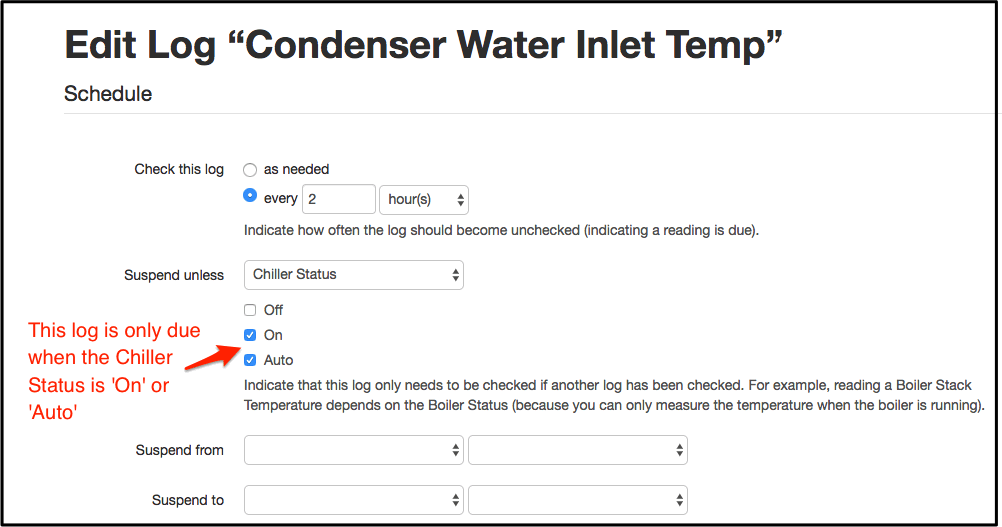
- Use a weather toggle to activate leak checks, freeze rounds, or walkway clearing and salting. Used in combination with seasonal suspensions, you will only have to worry about cold weather logs in the winter months.
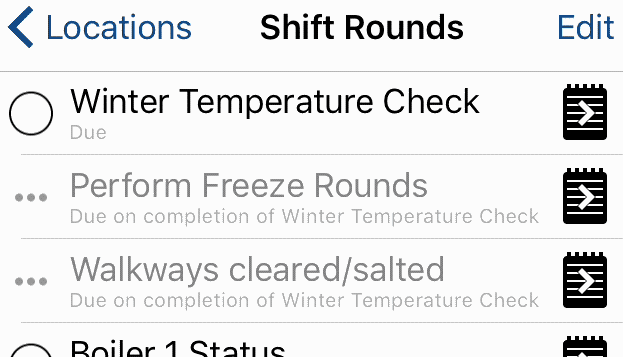
- Create a daisy chain of dependent logs. A dependent log can also be a parent log creating a series of dependencies like a daisy chain. You can visualize and troubleshoot those dependencies via the Schema Tab on the LogCheck web app. See the example below for chiller pump logs:
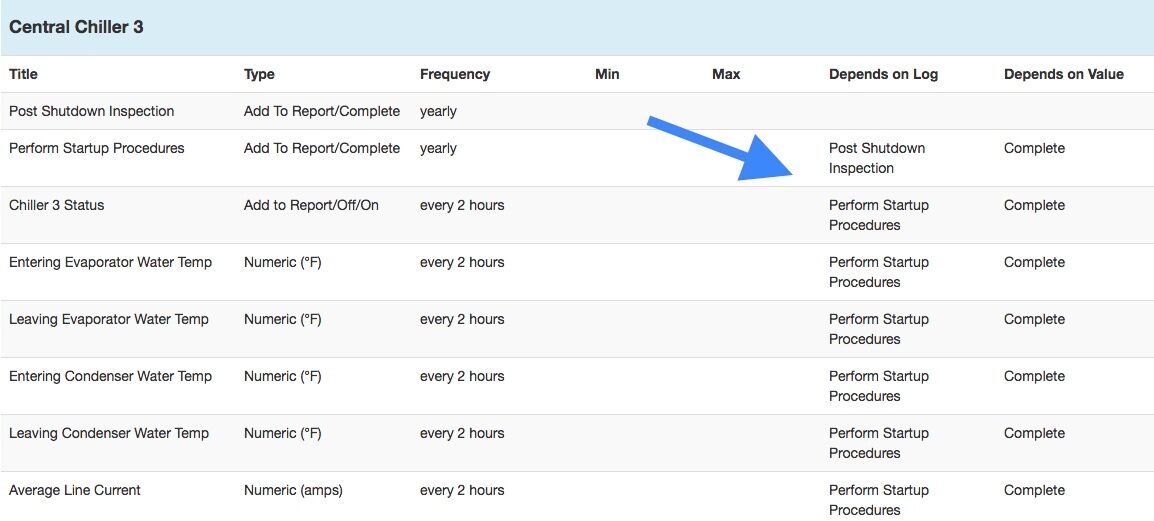
In this example, the pump readings will only become due if BOTH the chiller is running AND the specific pump is in service. Otherwise, the pump logs will remain suspended.
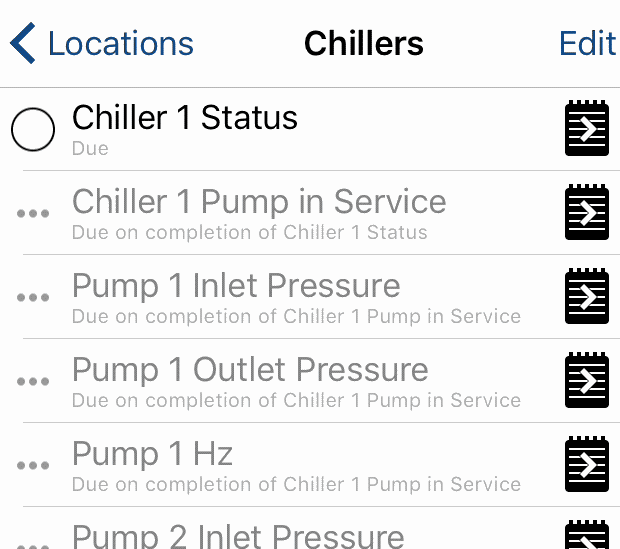
From the mobile app, you can see that when the user indicates that Chiller 1 is “on,” the log “Chiller 1 Pump in Service” becomes due. When the user indicates “pump 1” is in service, all of the pump 1 logs become due.
- If you’re ready to take it to the next level, create logs for specific events. Indicate a scenario that requires a set of actions outside of your routine operations, such as a large delivery or move in, a planned event in the building, or an external inspection. When selected, you can designate a set of logs to become active that correspond with that particular situation, and deactivate logs that can wait until the event is passed.
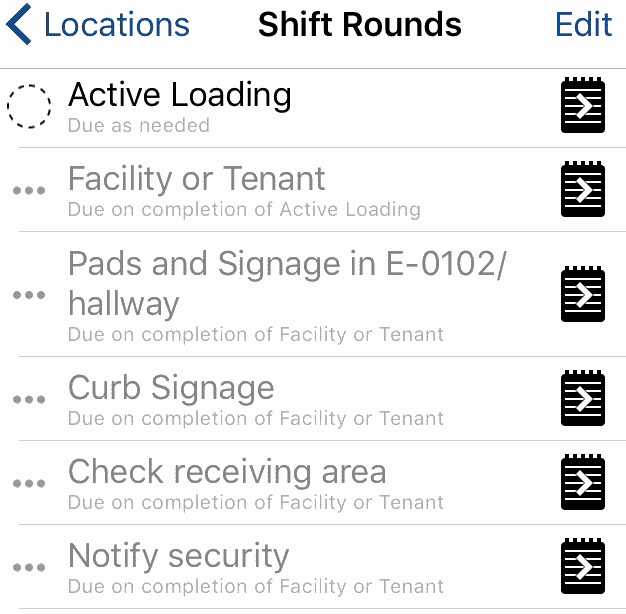
Adding dependencies to your logbook can streamline the workflow for your staff, reduce confusion, and help your team focus on what matters most – keeping your facility running safely and efficiently. Do you use dependencies for something not mentioned here? Leave us a comment or email us with your thoughts.
Wondering if dependencies could help improve the workflow in your facility? Check out ‘How to create a dependency’ and give it a try. Or if you need help, you can contact us at support@logcheck.com with any comments or questions. We’d love to help.



0 Comments